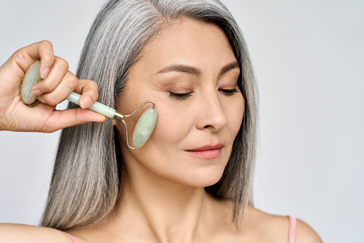What is Spirulina and How It Can Benefit Your Health?
Posted by Mike Miryala on

Spirulina used to be found in only health food stores, but interestingly, you can now find it in almost every supermarket. This blue-green algae is gaining massive popularity in the supplement world due to its high nutritive properties and health benefits, which we would be discussing in this article.
Though spirulina has been eaten as food for hundreds of years now in different cultures around the world, it recently became a health item in the US. It has a bitter taste, so people often mix it into juices, yogurts, and smoothies to improve its taste and flavor.
You can now conveniently find spirulina supplements in supermarkets and health food stores.
A Brief History of Spirulina
Spirulina has been used across different cultures around the world. Research shows that the Aztecs used this blue-green algae to treat different diseases. Also, it is considered a superfood-containing a high amount of nutrients.
Legends even have it that the kingdom’s messengers take spirulina to sustain their marathon runs.
However, modern research has looked deeply into the enormous properties of this algae, which is believed to be one of the oldest life forms on Earth.
Science has shown that spirulina is loaded with various nutrients and antioxidants, which supports normal functioning of the body and brain. Also, this algae contains a powerful plant-based protein – phycocyanin – which has anti-inflammatory, antioxidant, and brain-protective properties.
How can Spirulina Benefit Your Health?
Now, let’s discuss the several health benefits of spirulina, which have been supported by research:
Spirulina is loaded with many nutrients
Consuming spirulina is one way to supplement vitamins and proteins in your diet. This blue-green algae includes vitamin B1, B2, B3, K, magnesium, iron, and potassium. It also contains
Spirulina is one of the most nutrient-dense foods you can include in your diet. This qualifies it for the “superfood” status.
Spirulina also contains a high amount of antioxidants, with phycocyanin being the most abundant. Natural bodily processes and exposure of the body to harmful substances, including tobacco, alcohol, and some foods often lead to the formation of free radicals, which trigger tissue damage.
The antioxidant content in spirulina helps fight free radicals and protect your body from cell damage.
Supports oral health
Spirulina has been studied to offer benefits for oral health. One study shows how scientists treated 64 sites of gum disease using spirulina gel.
The antibacterial properties of spirulina make it effective for fighting many dental diseases.
A study showed that spirulina-enhanced mouthwash helped treat dental plaque and reduce the risk of gingivitis in subjects.
This blue-green algae has also been shown to help lower the risk of oral cancer, especially in people who chew tobacco.
May reduce blood pressure
Studies show that spirulina helps to reduce blood pressure. This is mainly attributed to the increased production of nitric oxide, which is a signaling molecule that supports relaxation and dilation of the blood vessels.
High blood pressure has been linked with many serious diseases, including chronic kidney disease, heart attacks, and strokes. But a dose of 4.5 grams of spirulina per day has been shown to be effective in reducing blood pressure.
May help against anemia
Anemia is commonly characterized by a reduction of hemoglobin in the red blood cells. This condition is seen more in older adults, and it leads to prolonged feelings of fatigue and weakness.
Spirulina supplements have been shown to increase the hemoglobin content of red blood cells.
Supports mental health
Several mental health conditions, including anxiety and depression, may be traced to low levels of serotonin.
However, spirulina is a good source of tryptophan, an amino acid that supports the production of serotonin. Hence, taking a good source of tryptophan to boost serotonin levels is a good way to support mental well-being.
Aids blood sugar control
Spirulina has been shown to outperform popular diabetic drugs like Metformin in the lowering of blood sugar levels.
One study conducted in 25 people living with type 2 diabetes who took 2 grams of spirulina per day shows an impressive reduction in blood sugar levels.
A 2018 review also shows that taking spirulina helped reduce fasting blood glucose levels.
May improve endurance and muscle strength
Oxidative damage induced by exercise is one major contributor to muscle fatigue. Several studies, however, show that plants that have antioxidant properties that help athletes and physically active individuals minimize muscle fatigue.
Spirulina is high in antioxidants and some studies have suggested it for improved endurance and muscle strength.
One study showed how spirulina enhanced endurance and increased the time it took participants to become fatigued.
Improve symptoms of allergic rhinitis
Spirulina is a popular alternative to treat symptoms of allergic rhinitis. This condition is often characterized by inflammation in your nasal passage, and it is triggered by allergens such as animal hair, pollen, wheat dust, and other environmental allergies.
One study shows that taking 2 grams of spirulina per day helped reduce symptoms like sneezing, nasal discharge and nasal congestion in 127 people.
May have anti-cancer properties
Studies have shown that spirulina offers beneficial effects on cancer diseases such as cancer of the mouth.
One study showed that out of people who took 1 gram of spirulina per day for a year, 45% saw their lesions disappear. But almost half of these people redeveloped lesions in the following year when they stopped taking spirulina.
Another study conducted in people with OSMF lesions show that taking spirulina leads to great improvement in symptoms compared to the action of drugs like Pentoxyfilline.
Help lower cholesterol levels
Taking spirulina extract has been shown to reduce high cholesterol levels, which is known to increase the risk of heart disease.
One review suggests that taking spirulina supplements may impact blood lipids level. The author pointed out several pieces of evidence to show how spirulina helped reduce total low-density lipoprotein (LDL) and cholesterol, while increasing high-density lipoprotein (HDL) and “good” cholesterol.
One study showed that taking 1g of spirulina daily helped reduce total body cholesterol in people after three months.
Final Remark
Countless studies have shown the benefits of adding spirulina to your diet. The most prominent benefits include blood sugar regulation, increased energy levels, antioxidant protection, and improved immune system.
Luckily for you, you can now enjoy spirulina in high quality daily greens combining over 50 fruits, vegetables, prebiotic fiber, probiotics, herbs and antioxidants. You can just add a scoop of this spirulina-containing daily greens to your drink or smoothies.
However, if you’re on any medication, you should always speak with your doctor before adding spirulina supplements into your routine.

Mike Miryala, Head Pharmacist at CoBionic
You might also like:
Turmeric Gummies
- Delicious 100% Vegan Gummies Loaded with Turmeric and Black Pepper
- Alleviates chronic inflammation and reduces joint pain
- Helps fight free radicals and boost immune system
- Naturally calms and soothes various digestive issues
NeuroRevive
- Advanced Supplement to Fight Brain Aging & Memory Decline At Any Age
- Contains Vitamin B6, B12 and Folate from NMN and 7 More Brain-Boosting Ingredients
- Increases NAD+ and Fights Neurodegeneration
- Elevates Neurotransmitters








